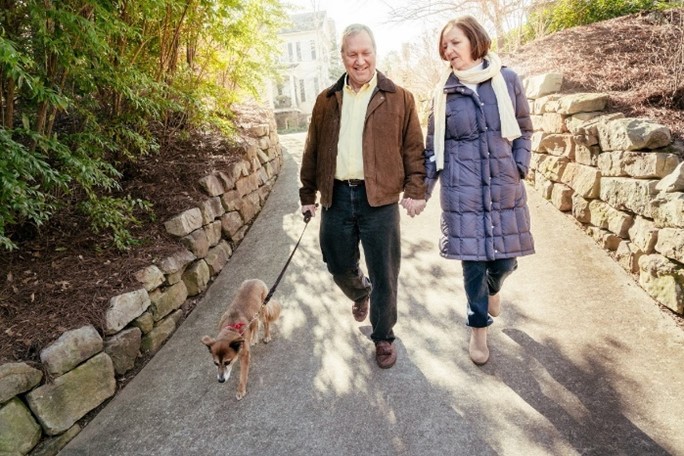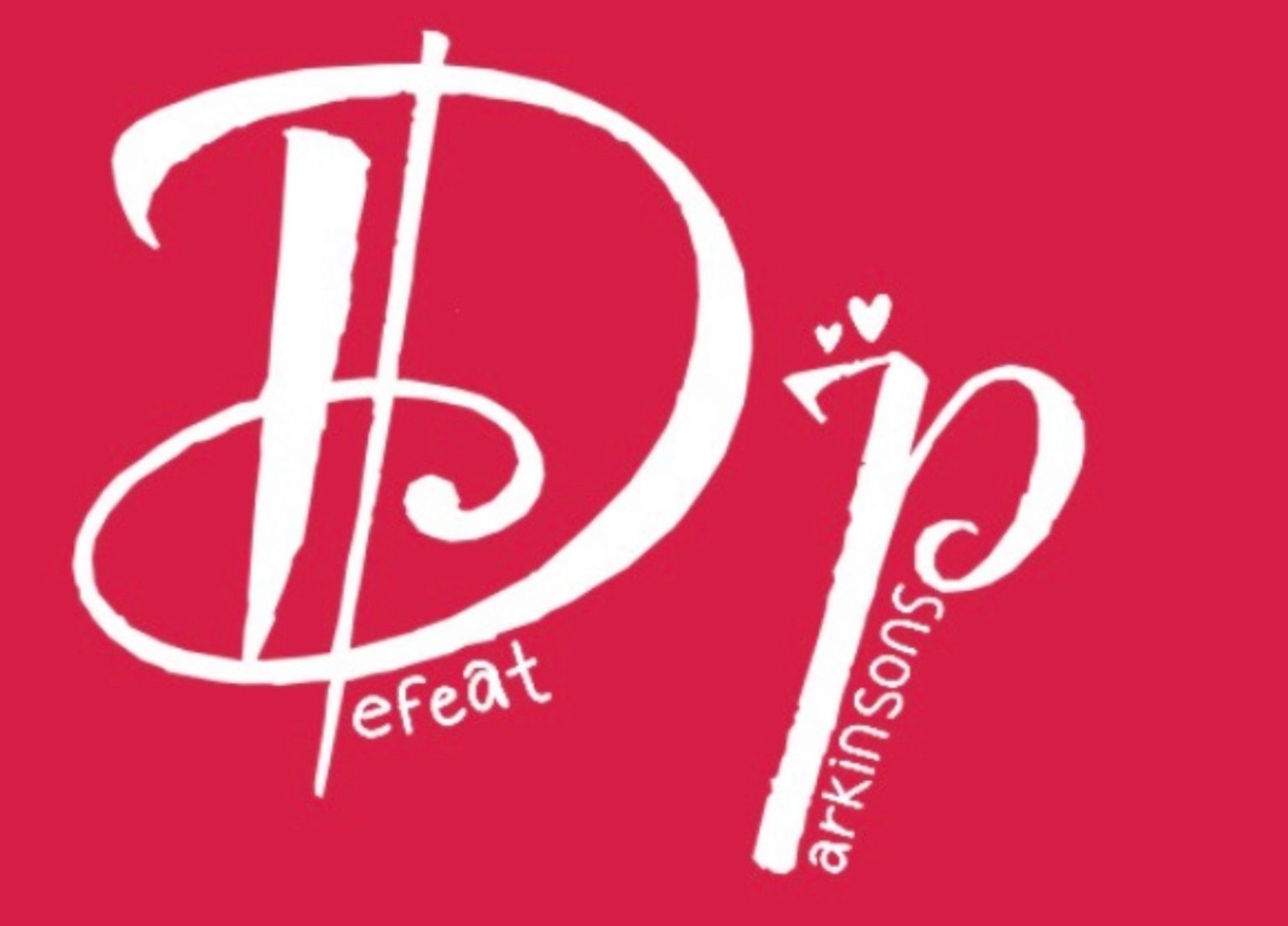This post was sponsored by Lundbeck, but all opinions within are my own.
While Parkinson’s disease is the second most common neurodegenerative disorder in the world after Alzheimer’s, there is a lesser-known condition that can be associated with Parkinson’s disease (PD), which can often be overlooked but can have a severe impact on quality of life. That condition is called is neurogenic orthostatic hypotension (nOH). Simply stated, it’s a failure of the autonomic nervous system to regulate blood pressure in response to postural changes.
In fact, one of my initial symptoms of PD was low blood pressure upon standing, which was diagnosed as nOH. Once I commenced treatment my symptoms became less pronounced and stayed that way for the last 15 years, until recently, when I began to experience a resurgence of severe lightheadedness. This has caused not only a sensation of weakness in my legs, but on one occasion, I had a near black out spell upon arising from a sitting position. During one of my most drastic episodes, my blood pressure plummeted to 80/50mmHg. This experience alerted me once more to the importance of proper diagnosis and treatment to avoid losing consciousness and prevent falls. It is not uncommon for people living with Parkinson’s to develop nOH.
So today, I have the privilege of chatting with Jody, who is part of Lundbeck’s nOH Champion patient ambassador program. Jody has been living with Parkinson’s disease since 2002 and joined me to talk more about this condition which affects 1 in 5 people with PD. She as well experienced symptoms of nOH- dizziness, lightheadedness, blurry vision and feeling of weakness or faintness when standing- for several years before receiving proper treatment.

Photo: Jody and her husband, Don
Jody is a retired elementary school teacher from Georgia who, despite living with both PD and nOH, still has an active lifestyle. I will begin by asking Jody some questions that will help us understand what it is like to live with this condition and what she does to maintain a positive outlook on life.
Me: Hello Jody, thank you for sharing your story with me. I understand you have PD. At what age were you diagnosed with PD? What were your initial symptoms of nOH?
Jody: Hi Maria, thanks for talking with me. I was diagnosed with Parkinson’s disease in 2002 when I was 44 and nOH in 2014 when I was 56. My initial nOH symptoms were dizziness after standing, difficulty thinking clearly and pain in my neck and shoulders.
Me: So, you were quite young as well when you were diagnosed with PD. I can totally relate to the difficulty thinking straight during these episodes. Tell me, when did you and your daughter realize that you were living with nOH?
Jody: Around 2014, my symptoms were getting worse and I was falling quite a bit. I would sometimes pass out after getting dizzy and injured myself a couple of times. Once, I even fell while I was going up the stairs. My daughter became increasingly concerned and started researching my symptoms and thought that I could have nOH. She encouraged me to talk with my doctor about my symptoms and receive a formal diagnosis.
Me: Wow, falling down the stairs can be quite frightening. Were there things in your life that you noticed having trouble performing because of your symptoms (of dizziness etc.)?
Jody: Yes, I used to love playing tennis, running, skiing, and doing anything physical. I cannot do those things anymore because of my symptoms, but I still stay active by riding a stationary bike, going out for walks, walking on a treadmill, riding a tandem bike with my husband, Don, and swimming.
Me: Since you mentioned you injured yourself a couple of times, did you fear falling or being alone while experiencing symptoms of nOH?
Jody: Yes, I had a fear of passing out and falling, particularly after I injured myself a couple of times. I was also very embarrassed by these symptoms.
Me: I can relate to the fear of being alone and falling and passing out. For a while there, I avoided going out alone in public. How did you cope?
Jody: My daughter was a huge advocate for me and really helped me cope with the condition. She was working for a PR firm at the time and her client was working to raise awareness for the disease. She researched my symptoms and strongly suggested I speak with my doctor. She would conference into my doctors’ appointments and add input about my symptoms. She also encouraged me to reach out to support groups, which has really helped me cope. My doctor too helped me manage my symptoms, using medication, hydration, increasing my salt intake, and elevating my head when sleeping. These changes have made a huge improvement in my daily living.
Me: I am so glad you have your daughter in your corner. It is important to have a good support group when living with any chronic illness. Those are all excellent ways to combat symptoms. How long did it take you to get a diagnosis of nOH? Why do you think it took so long?
Jody: I had been experiencing nOH symptoms for many years before I received a formal diagnosis. At the time, I attributed my nOH symptoms to my Parkinson’s, so it was not until my daughter advocated for me to talk to my doctor about my symptoms that I was diagnosed with nOH.
Me: Were there any special tests your doctor performed to arrive at this diagnosis?
Jody: My doctor took my blood pressure in different positions and saw that my blood pressure dropped really low upon standing. That was when he diagnosed me with nOH and said it was a condition that was related to my Parkinson’s.
Me: What was your reaction to the diagnosis?
Jody: I was thankful to have answers and after learning more about the condition, I could more easily see which symptoms were related to my nOH. Before my diagnosis, I had just attributed them all to my Parkinson’s.
Me: How has your life changed because of your diagnosis? What do you do to prevent symptoms if anything?
Jody: I have always enjoyed being active and my neurologist encouraged me to continue to do so, but I had to switch up my activities a bit because of my nOH symptoms. For instance, now I enjoy walking instead of running. To help manage my symptoms, I take medication and my neurologist recommended I drink more water, increase the salt in my diet, wear compression socks and elevate my head with a wedge while sleeping. Everyone is different though, so I’d encourage anyone experiencing symptoms to talk with their doctor about what’s right for them.
Me: What would you like people to know about living with neurogenic orthostatic hypotension?
Jody: I would want people to know that living with Parkinson’s and nOH isn’t easy, but there’s hope and they shouldn’t give up. I would also encourage them to talk with their doctor if they are experiencing symptoms of nOH because these symptoms can be managed.
Me: If you could go back what would you tell yourself? Your family? To help you deal with nOH.
Jody: I would tell myself to talk to my doctor sooner about my symptoms rather than just attributing them to my Parkinson’s. Regarding my family, I would just tell them thank you. My husband and daughter have been my biggest support system. Keeping my focus on my family helped me endure and not give up.
Me: Do you have any concerns or worries for the future? Where do you see yourself in 5 years?
Jody: I’m optimistic about my future. I see myself walking my daughter down the aisle and holding my future grand babies. Parkinson’s and nOH will always be something I’ll need to manage, but with my support system and amazing doctors by my side, I know I’ll persevere.
Me: I want to thank you for taking the time to chat with me about this condition that has a great deal of impact on those living with Parkinson’s. I hope that you continue to stay active and one day get to enjoy those grand babies.
As Jody mentioned, it is extremely important to receive a proper diagnosis and work with your doctor to get proper treatment. If you or a loved one are experiencing nOH symptoms, visit nOHmatters.com for more information on the condition.
© 2021 Lundbeck. All rights reserved. UBR-D-100870

Reblogged this on Parkinsons Diva.